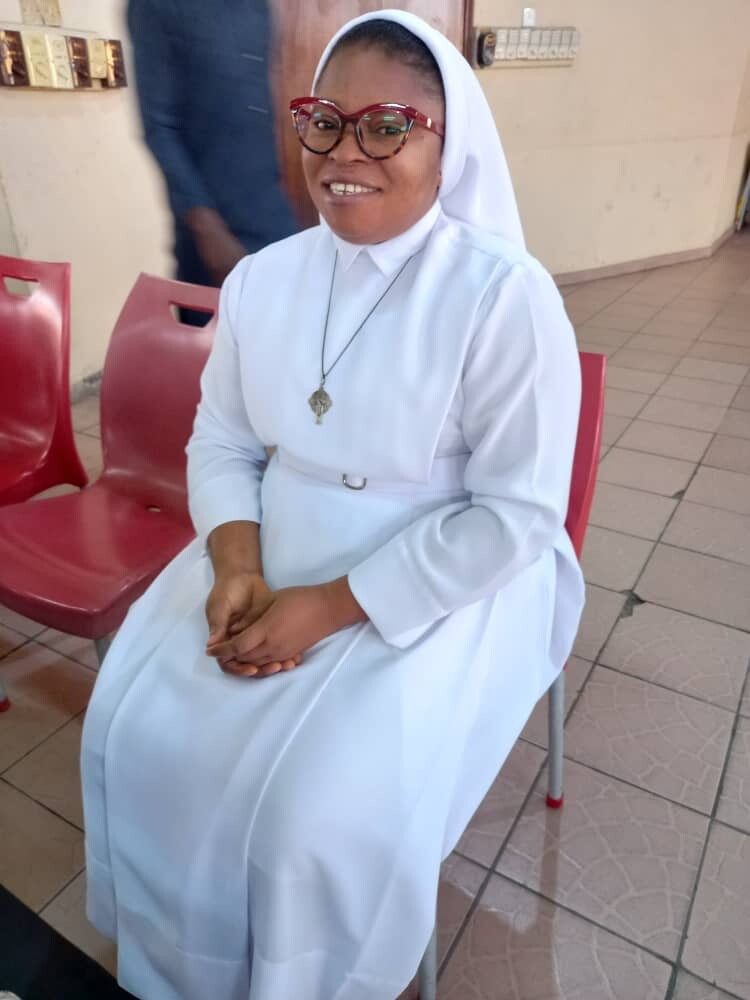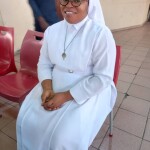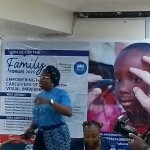For more than half a century, the Pacelli School for the Blind and Partially Sighted Children have been giving hope to children who will have been left behind because they lose their sight. But the school principal, Sister Agnes, told Equality Reporters the ups and downs of such a thankless job in Nigeria
How far has Pacelli gone in achieving its founding objectives?
If the organization has not achieved its objectives, it will not be in existence by now—since 1962. I think I should tell you what we have been doing. By God’s grace, the school is doing well. It was founded by the Catholic Diocese of Lagos, and we the Hand Maids of the Holy Child Jesus are managing it free of charge, and its full boarding. We accept students from every tribe and religion, including Islam, so long as you are qualified. By qualification, I mean children from seven to 14. But I said ‘students’ instead of ‘pupils’. The reason is that before Nigerian parents bring out the children with disabilities, and before the children even accept what they are—it takes a long time. So by the time the children come, they are already advanced in age. We also run a reception class for those who have never been to school. And we have a rehab class for those who get blind in secondary school. They learn to use the guide cane, typewriters, braille, and tape recorders, , for them to record class sessions and form their own notes. It’s just for them to be independent. They learn craft, too. After that, they go back to their secondary school, mostly the Kings College and the Queens College. We have 140 pupils fully boarded now.
Do you have an idea of the total number of children that have passed through this institution?
No. Except we go to check the record over the years. But all of them are out there doing well. Only that they refuse to come back here. At least they should come and encourage these children. I learnt that musician Asuquo Cobhams graduated from here. He has never returned for one day despite our invitation. But we thank God he and others are doing well, supporting their families, parents and society. You can see we have achieved a lot.
Does Pacelli have any beneficial relationship with the government?
Not at all. We have never benefitted from the government, but we are hoping they may respond someday.
How have government policies impacted this school?
We have challenges with some of their policies. Like examination: the promotion exams and NECO (for primary school). Our children will write their exams here, and when the exam boards release the results, they withhold our children’s. The last time it happened, we had to write and call many times before they eventually released the results they withheld. They never told us why they did that, and we didn’t bother to ask after they released the results. We have a lot of things we are coping with here. So we sort out an issue and move on at once. Another one is the problem of braille question papers. What they bring here are not enough to go round. We then have to be reading out the questions to the pupils. That happened last year. Another is age limits. I explained this to you earlier-how parents delay bringing their children with disabilities because of shame. For instance, a parent has called, and will soon bring a child who has never been to school—at 14. By the time the child goes through the reception and basic one to six, if he doesn’t repeat a class, you know he must have grown older than NECO’s age limit. And that policy is not only limiting blind pupils. It affects almost all children with disabilities. The exam authorities ought to consider this for these special children. Again, the state has adopted the computer-based test for its exams. We have a lab with JAWS-enabled computers here to train our pupils. Because if they go out there to attempt the CBT, the computers there will not have JAWS software for the visually impaired candidates. Even if you have no disability, you still must know how to use a computer before you can sit for a computer-based exam. We havr been inviting them to come and inspect our lab here. But they have not responded.
What can you say about inclusive education in Lagos and Nigeria, and what your idea of model inclusive education?
I researched inclusive education for my project at the graduate level in University of Jos. So I can tell you many people are not aware of this, and are not so inclined to choosing a career suitable for inclusive education. Where they practised it in Jos when I conducted my research, it was just like every other normal school. No ramp. No lift. Most of them didn’t even have special education teachers because a special education career is considered an option for people who are not sound up there. I myself was forced to study special education. I wanted to study nursing. But inclusive education is a good policy if it is well implemented. It affords all of us including PWDs equal opportunities. And you will see these special-need children excel.
Rehabilitation has its role in disability management. How do you go about it here?
Like I told you, Nigerian is not yet fully aware of stages like this in disability. Look at guidance and counselling, for instance. How many people go for it? Abroad, they take steps like these more seriously. But with time, we might get to that level too. Here we are not into so much rehabilitation of the children because even Nigeria doesn’t have enough rehab centres.
How much independence have your pupils achieved in the course of their staying here?
Let me start from those now in secondary school: they are on their own. They go to school, and come back. Nobody follows them so long as they have their white cane. Even there, the teachers don’t give them any preference. One of our students lost his shoes, and resumed barefoot recently. They sent him back. And I like that. It makes them strong. Our students can cook. They even came first in a cooking competition with others contestants without disabilities. They weave. They do tie and dye. They have come to accept that this is how they will live for the rest of their lives.







